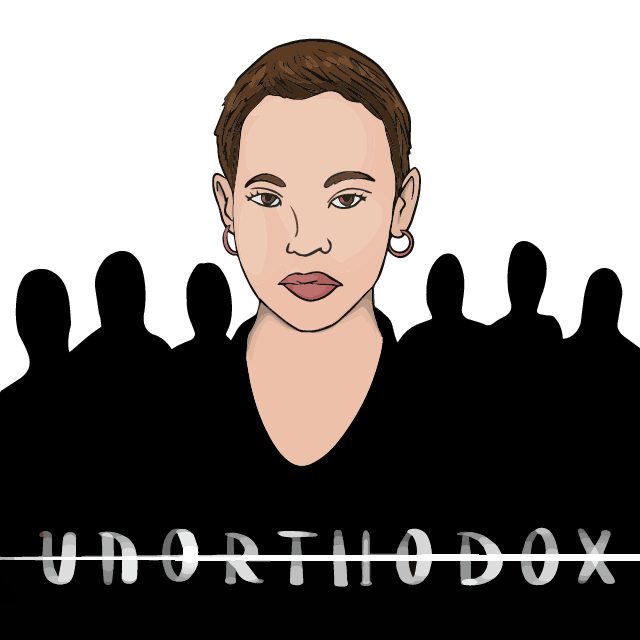Netflix’s new original series “Unorthodox,” is a must-watch, four part series centered around a young woman’s emancipation from her Hasidic Jewish community in Williamsburg.
Inspired by Deborah Feldman’s memoir, “Unorthodox: The Scandalous Rejection of My Hasidic Roots,” “Unorthodox” tells the story of 19-year-old Etsy Shapiro, played by Israeli actress Shira Haas who escapes to Germany, leaving behind her husband and entire community, after discovering she is pregnant. Etsy struggles in learning how to maneuver and function in the modern world after spending her entire life in a community that does not even allow the internet. Etsy, while being practically homeless in Berlin, befriends a diverse group of music students who show her the ways of our world.
The irony of a Jewish woman finding freedom in Germany is not glossed over. Modern-day Germany is shot to look like the pinnacle of modern achievement. For someone who’s been as repressed as Etsy, it certainly appears like a utopia. Yet all she can think about are all the Jewish ghosts, an especially relevant concern today, as many still struggle to come to grips with the success we have while also coming to terms with the tragedies of our past.
Yet the Germany presented in “Unorthodox” is one that has moved on from, but still acknowledges, its bleak history. At one point, Robert, Etsy’s German love interest, points across a lake they are swimming in toward a villa and tells her how it once hosted a conference where Nazis slaughtered Jews.
“And you swim in this lake?” Etsy responded with disgust.
His response has to be one of the best representations of what this show is trying to say: “Well, a lake is just a lake.”
The story doesn’t only focus on Etsy’s life in Germany. It is split between her time in Germany and flashbacks to her former life in Williamsburg, which is a real treat for the audience. While Etsy feels like a fish out of water in Germany, the audience gets that similar experience seeing the authentic portrayal of the Satmar Hasidic Jewish community, who are directly descended from Hungary Jews that either escaped or were Holocaust survivors. From costume to rituals, it is obvious that the show has vested determination in portraying this community as accurately as possible. Yiddish is even the primary language for the majority of the show. While the audience may get lost in understanding what is exactly going on, there is such a universal quality to the writing that no characters’ intention will be lost on you.
“Unorthodox” should be a reminder to the film and tv community why diversity is so necessary in art. Stories like Etsy’s show that, regardless of what community we are born into, the necessity to be allowed to express oneself is universal. In learning to move on with Etsy, “Unorthodox” gives us a chance to be engrossed and love a culture that is not our own.































